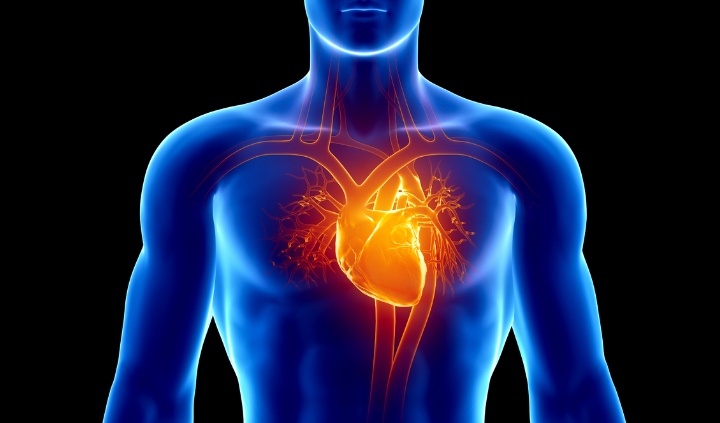Heart Health
Conveniently located to serve the areas of Miami, FL

Heart health is the state of the cardiovascular system and its ability to function effectively in the context of your overall health. Heart disease, also known as cardiovascular disease (CVD), refers to a variety of conditions that can affect the way your cardiovascular system functions. Heart disease is one of the two leading causes of death in the United States and has been since 1975, causing 1 out of every 4 deaths. In addition, it is also the leading cause of death globally. (1)
Dr. Jason Shapiro integrates functional medicine strategies with internal medicine to proactively prevent or reverse metabolic diseases commonly associated with heart disease. To schedule a virtual or in-office consultation with Dr. Shapiro, please call our Miami office at (305) 763-8832 or contact us online.
“Optimizing heart health requires an integrated approach that addresses hormone balancing, metabolic nutrition, blood pressure control, lifestyle changes, and sleep.”
-Dr. Shapiro
Contents
About Heart Health
Heart disease refers to a group of conditions that can affect the cardiovascular system in multiple ways, all of which can significantly impact a patient’s health if not treated properly. Heart disease can manifest in several different ways, including but not limited to:
- High Blood Pressure: High blood pressure can occur due to unhealthy lifestyle choices, such as a lack of regular physical activity and a poor diet. It can also be caused by genetics or certain medical conditions. When the blood pressure is too high, the heart works harder than it normally should. This can lead to the thickening and potential damage of the heart muscle. Over time, high blood pressure can damage the walls of the arteries, leading to arrhythmias, heart attack, or stroke. Prioritizing blood pressure and heart rate control is an important metabolic goal set for every patient of Dr. Shapiro.
- Atherosclerosis: Atherosclerosis occurs when fat, cholesterol, and other substances in the arteries build and clump up, forming plaque deposits. (1) These plaque deposits can block the flow of blood and oxygen, often leading to tissue damage. In some cases, this build-up can result in heart attacks and strokes. Dr. Shapiro frequently screens for calcified plaque in the coronary arteries with state-of-the-art imaging techniques like a Calcium Score CT scan.
- Angina: Angina is the uncomfortable chest pain that occurs when there is not enough oxygen-rich blood flowing into the heart. This can cause the arteries to narrow and the heart to beat faster to pump more blood, which leads to a painful feeling. In some cases, angina can be a warning sign of heart disease.
- Heart Attack: This condition, also known commonly as a “heart attack”, occurs when blood flow to specific parts of the heart is stopped or significantly reduced, causing permanent damage to the affected heart muscle. This is a serious condition often caused by the accumulation of plaque, or fatty deposits, found in the coronary arteries. When a plaque ruptures, a blood clot can form and obstruct the flow of blood. (1) This lack of blood flow can lead to damage to the muscle cells in the heart, which is why early prevention and heart health treatment are so important.
Dr. Shapiro frequently refers patients with these types of symptoms to cardiologists within his referral network.
To learn more about other associated factors and health conditions, please check out our blog!
Benefits of Improving Your Heart Health

There are many benefits to improving and maintaining the health of your cardiovascular system. By managing the health of the heart, patients can help reduce the risk of heart disease and stroke, increasing both the longevity and quality of their lives. Heart health treatments can potentially help patients prevent certain heart conditions and manage associated symptoms, such as blood pressure levels, cholesterol levels, and weight fluctuations. Taking a proactive approach to preventing heart disease with personalized treatment plans created by Dr. Shapiro allows patients to optimize their heart health, leading to a more sustainable and healthier life overall.
Heart Health Treatments

To determine the best functional medicine treatment plan to optimize your heart health, Dr. Shapiro will do a battery of testing, which includes an EKG, fasting metabolic blood work, body composition analysis, and in some cases, a Calcium Score CT scan or exercise stress test. Based on the testing results and the patients’ symptoms, Dr. Shapiro will create a personalized treatment program that may incorporate prescribed medication, as well as specific supplements and even nutrition and lifestyle recommendations, all designed to optimize heart health.
Patients should commit to a regular exercise routine, typically consisting of at least 150 minutes each week. It can also be helpful for patients to incorporate relaxing mindfulness techniques such as meditation or yoga into their routines. (3)
Dr. Shapiro may ask patients to return to the office to attend regularly scheduled appointments to help monitor the blood pressure and cholesterol levels of each patient. This is to ensure the treatment is having the desired effects, allowing for sustained optimization of hearth health.
Weight Loss for Heart Health
Dr. Shapiro may prescribe weight loss medications to patients receiving treatments for heart health who also suffer from weight-related conditions. Semaglutide treatments (for example, Mounjaro, Ozempic, and Wegovy) can reduce heart disease risk factors by mimicking GLP-1 hormones to help regulate blood sugar levels, facilitate substantial weight loss, and ultimately decrease the risk of cardiovascular disease. (4, 5) During your consultation, Dr. Shapiro will ask about your lifestyle and assess your body mass index (BMI) to determine whether or not a GLP-1 medication is a good fit for you. In Dr. Shapiro’s opinion, weight loss medication is most effective when combined with an anti-inflammatory diet and regular exercise.
The Cost of Heart Health in Miami
During your consultation, our patient coordinators will provide an all-inclusive quote based on your personalized plan to improve your heart health.
If you’re ready to start optimizing your heart health, please call our Miami office at (305) 763-8832 or contact us online, and we will get back to you as soon as possible.
FAQ
What Should I Do If I Have Symptoms of Heart Disease?
If you experience any symptoms such as chest pain, dizziness, or excessive fatigue, please call 911 and seek medical attention immediately.
Can A Healthy Diet Impact My Heart Health?
Yes! Eating a heart-healthy diet rich in fruits, vegetables, whole grains, lean proteins, and healthy fats can significantly reduce the risk of cardiovascular disease.
What Are Some Signs That My Heart Health Is Declining?
Common indicators include shortness of breath, unusual fatigue, swelling in the legs or abdomen, and persistent cough. Seeking professional advice is crucial if you suspect you may be suffering from heart disease.
References
- Lopez EO, Jan A. Cardiovascular Disease. National Library of Medicine. Published August 22, 2023. https://www.ncbi.nlm.nih.gov/books/NBK535419/
- Weronika Adach, Kamila Ryczkowska, Janikowski K, Banach M, Agata Bielecka-Dąbrowa. Menopause and women’s cardiovascular health – is it really an obvious relationship? Archives of Medical Science. 2022;19(2). doi:https://doi.org/10.5114/aoms/157308
- Diab A, Dastmalchi LN, Gulati M, Michos ED. A Heart-Healthy Diet for Cardiovascular Disease Prevention: Where Are We Now? Vascular Health and Risk Management. 2023;19(19):237-253. doi:https://doi.org/10.2147/VHRM.S379874
- Jahagirdar D, Mahood Q. Semaglutide for Type 2 Diabetes (2 Mg): CADTH Health Technology Review. Canadian Agency for Drugs and Technologies in Health; 2023. https://www.ncbi.nlm.nih.gov/books/NBK598216/
- Kommu S, Whitfield P. Semaglutide. PubMed. Published February 11, 2024. https://www.ncbi.nlm.nih.gov/books/NBK603723/





